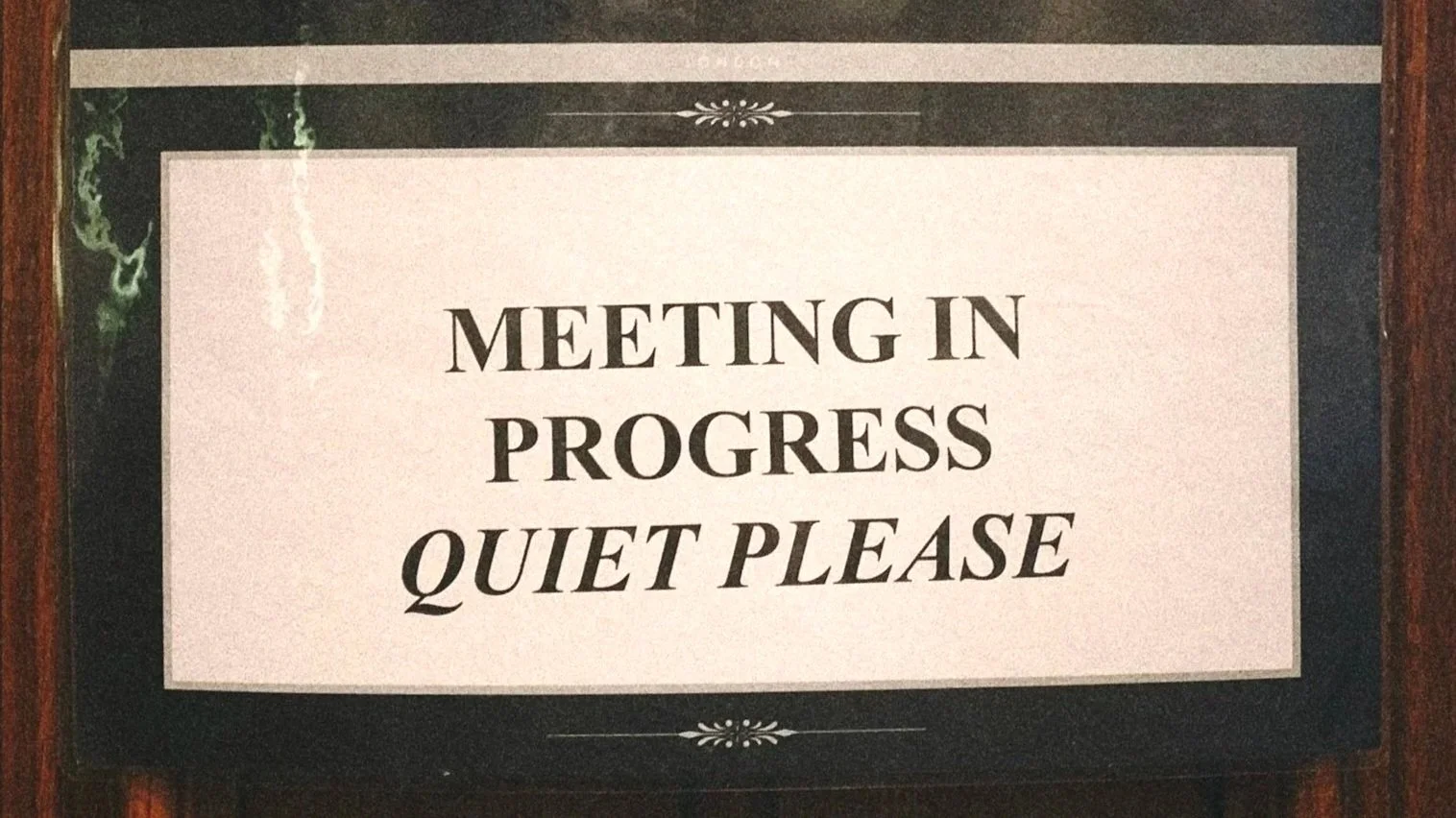values in the corridors of power
As values-based messaging trainers and teachers, one of the most frequently asked questions we get is, ‘Is it really possible to use this approach when speaking to governments or bureaucrats?’
So we asked two very experienced public affairs practitioners for their opinions:
Maiy Azize is Deputy Director of one of Australia's largest charitable networks, Anglicare Australia. She is also the spokesperson for Everybody’s Home, a national campaign to end Australia’s housing crisis, and has authored several major studies on housing and welfare.
Caterina Giorgi is the Founder of For Purpose, a national organisation working with progressive organisations to build their capacity to create positive social change. She has worked in purpose driven organisations for almost two decades, including most recently as CEO of the Foundation for Alcohol Research and Education.
Maiy Azize: Our values belong in every room we enter
Community organisations are getting better at understanding what persuades people. We’re learning that leading with values works, and that stories grounded in shared humanity cut through in ways that facts alone never do. We’re becoming more confident about naming what we believe, not just what we can measure, and have come to understand that using the frames of our opponents hurts us, instead of helping us.
But too often, that confidence evaporates when the meeting room door closes. Sitting across from public servants or ministers, many of us revert to old habits. We second-guess ourselves. We switch from values to jargon, from moral clarity to technical detail, from “we believe” to “we propose.”
The very strategies that strengthen our public campaigns are often undermined behind closed doors.
It’s time to stop making that switch. The same values-led messaging that moves the public can strengthen our influence in government. And when we don’t speak with one voice - when we undermine our messages or water down our asks - we weaken our collective power.
Decision-makers are human too
The first reason for bringing our values into those meetings is simple: decision-makers are people. They respond to the same cues and frames as everyone else.
Research from Anglicare Australia backs the idea that values drive how people think about policy. We found that the vast majority reject the idea that people on government payments “deserve” to be poor, and they strongly agree that circumstances drive poverty more than individual failings.
Yet, despite these sympathetic views, many advocates wrongly assume that our government audiences are unmoved by moral arguments. We over-estimate their self-interest and under-estimate their compassion. That leads us to frame issues in economic terms (“this will boost productivity”) or in bureaucratic ones (“indexation should be adjusted to CPI”), instead of moral ones (“nobody should have to live in poverty”).
This is a costly mistake. Anglicare Australia’s research, drawing on the Common Cause framework, found that appealing to compassionate values, like care, fairness, and shared responsibility, strengthens those values. Appealing to self-interest strengthens the opposite. The people we meet in government are shaped by the same cultural narratives as everyone else.
If we want to expand the political space for compassion, then every interaction, whether in a media interview or a policy roundtable, needs to model that frame.
Diluting our messages and our asks weakens our campaigns
The second reason for consistency is strategic. When our private language doesn’t match our public messaging, we undermine our own campaigns and signal to decision-makers that we support their approaches. And this isn’t just about rhetoric. It is also about the substance of what we ask for.
One of the quietest yet most damaging habits in the advocacy world is the tendency to water down asks when sitting across from decision-makers. Advocates often enter meetings already negotiating against themselves, weakening the ask, shaving off the substantial parts, or presenting only the elements that decision-makers already support. They do this to appear reasonable, or because they fear a strong ask will be dismissed.
The effect is the opposite. A watered-down ask gives permission to ignore what we campaign for in public. It tells ministers and officials that even we don’t believe that the things we’re asking for are possible. And it directly conflicts with the messages being delivered to the public.
Our sector’s advocacy relies on unity of purpose. If our public campaigns say, “Everyone should have a safe home,” but our private meetings say, “Adjust an existing program”, policymakers hear the quiet message, not the loud one. And if we approach these asks from the perspective of saving money, boosting productivity, or making programs more sustainable, we are telling decision-makers that these are the best ways to approach our issues.
Governments know when a sector is divided, hesitant, or low on confidence. They are far more likely to act when they see a movement that is consistent, united, and willing to mobilise a constituency. And they are far more likely to ignore reforms that advocates themselves are unwilling to fight for.
We saw this dynamic in early 2024 when the Federal Government announced changes to the Stage 3 tax cuts. Many groups played a role and no single organisation can claim credit, but the reason the narrative shifted was consistent framing. Anglicare Australia and others had spent years making the case the tax cuts were unfair. If they had walked into meetings advocating only for small tweaks or “middle-path” reforms, that fairness frame would never have held. By bringing the same argument to government that they brought to the public, fairness became the dominant lens for the entire debate.
The discipline of speaking our values
Maintaining this discipline is not always easy. When you’re sitting opposite a politician or a public servant, it can feel safer to retreat into the comfortable technicalities. When you’re meeting a new minister, it can feel prudent to speak their language instead of signalling where you stand.
Values-based advocacy is about framing the action we need through a shared moral lens. That means standing by the changes we all know we need, not settling for what those in power are willing to give us and accepting their reasons for failing to do what needs to be done.
Keeping our compass steady
The language we use in private shapes the policy culture we inhabit. So does the strength of what we ask for. If we dilute our message or our ambition behind closed doors, we reinforce a bureaucratic frame that treats social policy as a narrow administrative puzzle rather than a moral choice.
But if we speak consistently, grounded in our values, we remind decision-makers that these are choices about who we are as a country. We expand what seems politically possible.
Values-led advocacy is a strategic discipline, a source of unity, and a way of holding our ground. It reminds governments that policy is always about values. And it reminds us that our values belong in every room we enter.
Caterina Giorgi: it’s stories and values that persuade decision makers
Whenever I ask decision-makers why they supported a policy, the first answer is rarely ‘because the evidence was so strong’ or the ‘economic analysis was too compelling’. It’s usually because of a moment that has stayed with them - a person they met with who is living the issues we are raising, a story that was shared about the impact of action or inaction, or a persuasive argument or metaphor that got them thinking about the issue in a different way.
Does the evidence matter? Absolutely. Does understanding the policy setting and economic context for reform important? Sure. Does this alone persuade decision-makers? Usually not.
There are frequently reams and reams of evidence, including economic analysis, supporting what we are advocating for. The barrier to change is often that decision makers need to be convinced that this issue is a priority, and that what we are proposing is the best way to address it. They also need to be able to persuade their colleagues of this. The way to do this is through values-based messaging, metaphors, stories and anecdotes about the real-life impacts of what is being proposed.
Despite this, there’s a dangerous belief that as advocates, we need to use a different language when speaking to them. A ‘language of Canberra’, embedded in economics and jargon.
But government decision makers, like other humans, are affected and moved by stories that connect with them and their values. This means they are just as capable of being persuaded by values-based messaging as other humans.
The best way to persuade decision makers to advance policies that will result in families and communities being healthy, safe and well is to communicate with them using values-based messaging. This not only conveys the importance of the issues we are raising on a deeper level, but also gives them the arguments and messages they need to persuade their colleagues and stakeholders and make the case for change.
How do you ensure that you speak to helpful values behind closed doors as well as in public campaigns? Drop us a line - we’d love to hear what you think!
To learn more about the art and science of values based messaging, take a look at our Training page.

